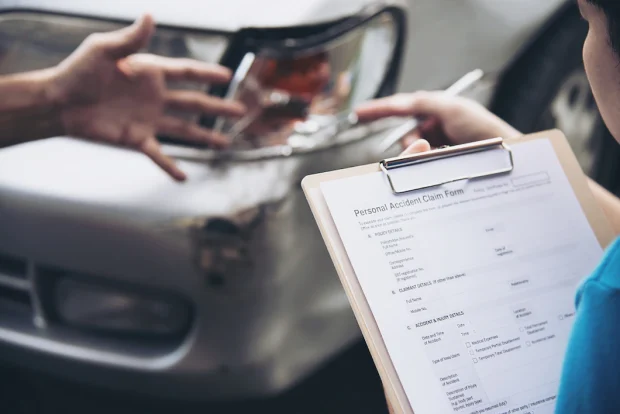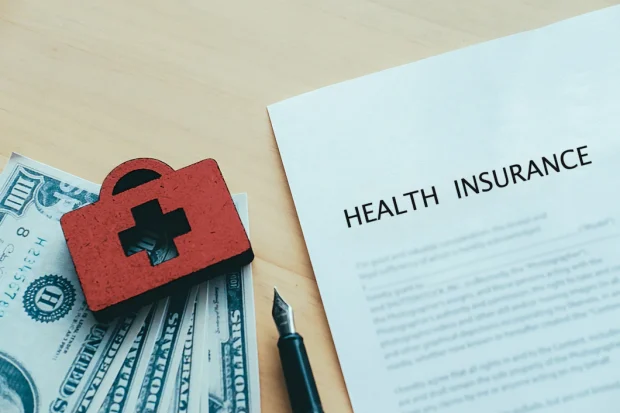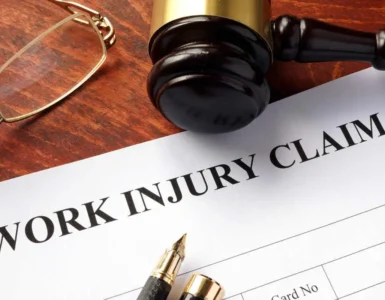No matter how many precautions you take, sometimes, the other person being negligent in keeping up with their responsibilities can lead to immense damage. Such is the case when it comes to personal injury claims. For instance, you could be walking on the streets and a negligent driver can hit you, leading to bodily injuries. Similarly, you could be walking in the mall enjoying your shopping spree, but you can slip and fall, cursing multiple physical injuries. These injuries could have been prevented if the owner was more careful about their responsibilities.
Personal injury law, also called tort law, grants everyone the right to file a civil lawsuit if they are injured in an accident. It is known as a personal injury claim. Since personal injury accidents can cause immense physical injuries and damages, the victim should not bear the consequences of someone else’s irresponsibility on their own. The law helps the injured victims seek legal remedies to compensate for all the losses incurred due to the accident. Read more about personal injury claims here anthonycarbonepersonalinjurylawyer.com
Purpose of Personal Injury Claim

The main aim of this claim is to provide a fair amount of reparation to the injured person. This helps to make up for the sufferings endured by victims because of the defendant’s negligent conduct.
This law’s monetary compensation assists in addressing the grievances of accident victims and providing them with their due reimbursement.
Instances where personal injury claims can be filed

In various situations, personal injury law can be used to file a claim. Some of them are as follows:
• Accidents
Personal injury claims can be filed when someone’s negligent conduct results in an accident and causes physical injury or other types of harm to a person. Some cases involve automobile accidents, slips and falls, and medical malpractice. This is generally due to the carelessness of an individual, leading to severe aftereffects.
• Intentional Acts
In certain situations, it is observed that the cause of a lot of accidents or other harmful cases is the intentional malicious conduct of a person. Such an individual can be charged with personal injury laws. Cases of assault come under such acts.
• Defective Products
Suppose a product is defective and causes harm or danger to someone. In that case, the victim is lawfully entitled to file a product liability case against the manufacturer of said product. It is the manufacturer’s responsibility to maintain the well-being of consumers and sell products that are safe for consumption. Failure to do so may result in potential charges.
• Defamation
If someone releases a statement that causes defamation or any other sort of harm to another person, they can be charged under personal injury laws. It occurs when someone releases a hurtful statement about the victim, causing damage to their reputation.
The Personal Injury Claim Process

Personal injury law may seem like an easy process to get compensation for your injuries. However, in reality, the process can be time-consuming, depending on the complexity of the case. After getting into a personal injury accident, the process for each victim may look different. However, here is how most personal injury cases process moves.
• Collecting evidence
Following a personal injury accident, it is crucial to collect as many evidence as you can against the at-fault party. The evidence include pictures and videos from the accident, evidence of your injuries, medical records and bills, property damage proof, emotional pain and sufferings, witness statements, police report (in case of motor accidents), and more. Any small piece of evidence which you think can be useful to prove the other party was irresponsible can come in handy.
• Speaking to an attorney
An experienced personal injury can be your best assistance to guide you through the process. In situations where you are severely injured and cannot physically collect and preserve evidence, your attorney will help in doing the same. An attorney can work with other professionals and collect solid evidence to hold the negligent party accountable. Furthermore, the attorney will also guide you about statue of limitation and whether you are eligible to file a personal injury claim. In case you are, they will help you explore all the possible options.
• Filing a claim
In most personal injury cases, the victim can file a claim with the negligent party’s insurance company. When filing a claim, you will have to submit all the evidence you have against the at-fault party along with additional legal formalities as set by the insurance provider. Remember, the insurance company will not give you compensation right away.
• Investigation by the insurance company
After you file a personal injury claim, the insurance company will conduct its investigation. The investigation involves finding liability based on the evidence you have given and their own research.
The insurance company will work with additional experts to verify your evidence and determine who is liable. In case their insurance policy holder is accountable, the company will verify the amount for compensation based on your injuries and losses.
• Negotiation and settlement
When the defendant’s breach of duty is clear to everyone involved in the case, the insurance company for the defendant tries to settle the case outside of court by offering settlement offers. The insurance company works too clever to save its money. Hence, it will try to play various tactics by offering lower settlement initially. However, your attorney can negotiate with the insurance company and demand the compensation that you are truly eligible for.
If both the parties mutually agree with the settlement amount, you will be granted the declared compensation. Note that if the victim approves of this settlement, they will not be allowed to take the case to court or seek compensation again.
Helping injury victims navigate their legal rights and seek compensation, hiring a slip and fall lawyer can provide the expertise needed to build a strong case and secure the deserved settlement.
It’s essential to remember that accepting a settlement is a significant decision that requires thorough consideration. While the immediate financial relief can be tempting, it’s imperative to weigh the long-term implications and whether the offered amount truly compensates for the damages and suffering endured.
• Case goes to the court
In cases where the case cannot settle out-of-court, the victim has the right to file a personal injury lawsuit and let the court decide. During the trial, your attorney can represent your case in front of the judge and so will the defendant. The final decision is left with the judge. Once the trial ends, the judge will determine liability and compensation amount for the victim by carefully reviewing the case.




























